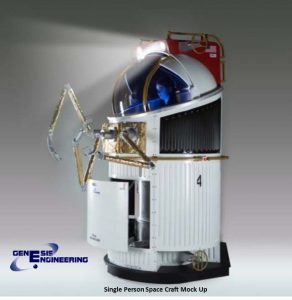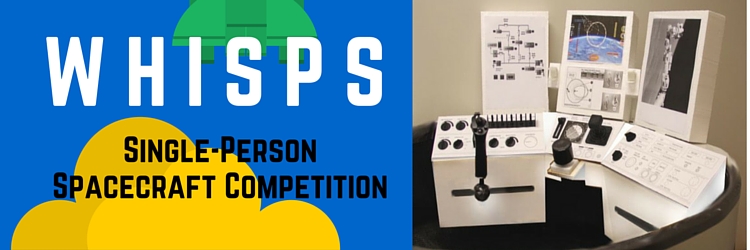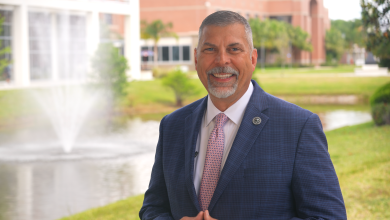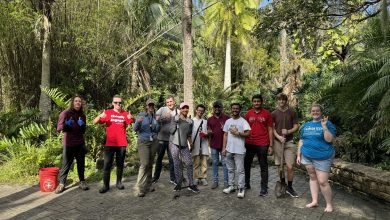Students Win Single-Person Spacecraft Competition
Students from the Florida Institute of Technology School of Human-Centered Design, Innovation and Art placed first in a competition to develop a Single-Person Spacecraft.

Photo credit: GENESIS
Graduate team Ondrej Doule, Joseph Torkaman, DeVere Kiss, Kareim Elbaz and Azeez Sathick Batcha won the $2,500 grand prize for their “Wholly Human Integrated Single-Person Spacecraft.”
Genesis Engineering Solutions in Lanham, MD sponsored the three month competition as a way to integrate student creativity into the development of their Single-Person Spacecraft.
Students from engineering, industrial design, human factors, and space architecture were encouraged to develop creative internal designs using only existing technologies. They had to provide controls for flying the SPS and operating robotic arms, all while floating in zero-gravity.
The WHISPS team was excited to win after working “days, nights over midnights and weekends on this competition with great motivation.” The team had to create a full-scale model and 10 page paper outlining their research and model.
WHISPS’s submission addressed the challenges of working in the extreme environment of space and balanced new unproven technology in space like touch pads with old-school analog knobs reminiscent of the 80’s-era Shuttle displays and controls.
“Our layout design would not have been successful without the multidisciplinary collective of knowledge that made up the WHISPS team,” Joseph Torkaman said.

The interior had to include displays and controls, warning lights and alarms, pilot restraints, creature comforts and other equipment found in a car. The students also had to take into consideration environmental factors such as weightlessness, temperature and radiation.
“We spent more than 60% of our design time performing functions analyses to understand real need of astronaut putting forth human-system integration and Human-Centered Design methodologies,” team leader Ondrej Doule said. “We are really happy that it was worth it!”
The winners of the SPS internal design competition were selected by a panel of experienced space experts. In addition to GES personnel, jurors included a former NASA Astronaut, NASA human factors engineers and specialists in robotics.
“I am extremely proud to have been a part of this team and consider it to be one of my most valuable accomplishments in life,” De Vere Kiss said. “We focused on our goals, on developing something with meaning and purpose, and we paid attention to what we were doing. That is how I will remember this achievement.”





